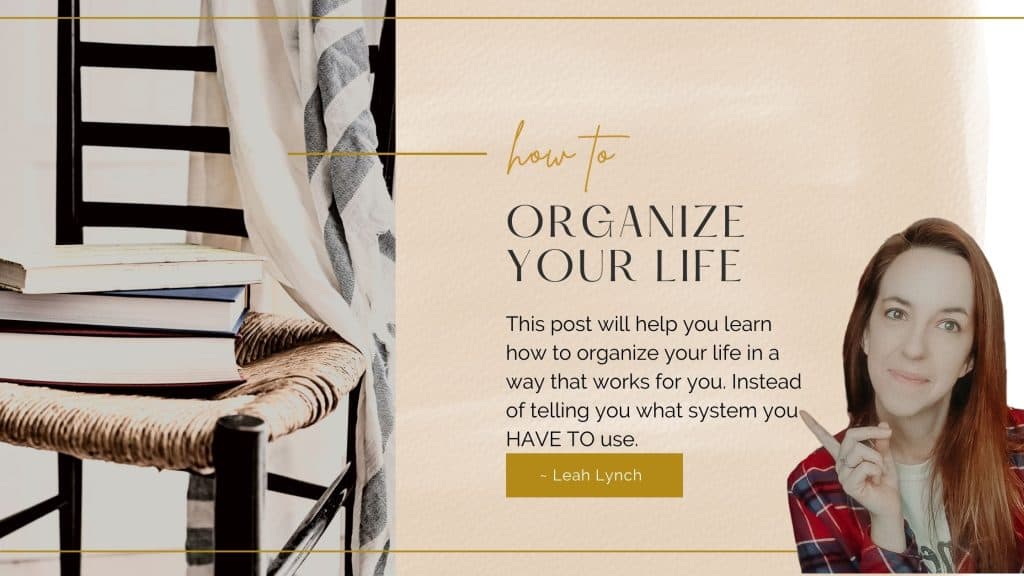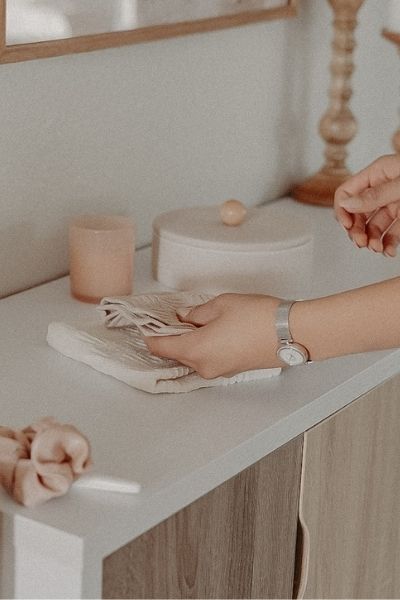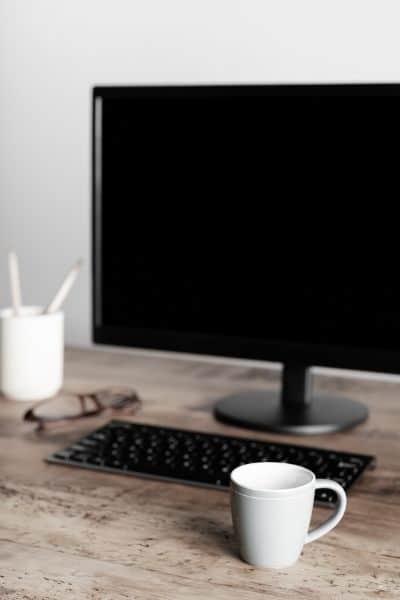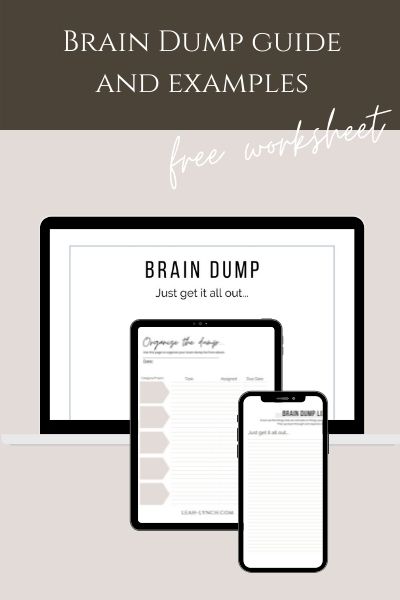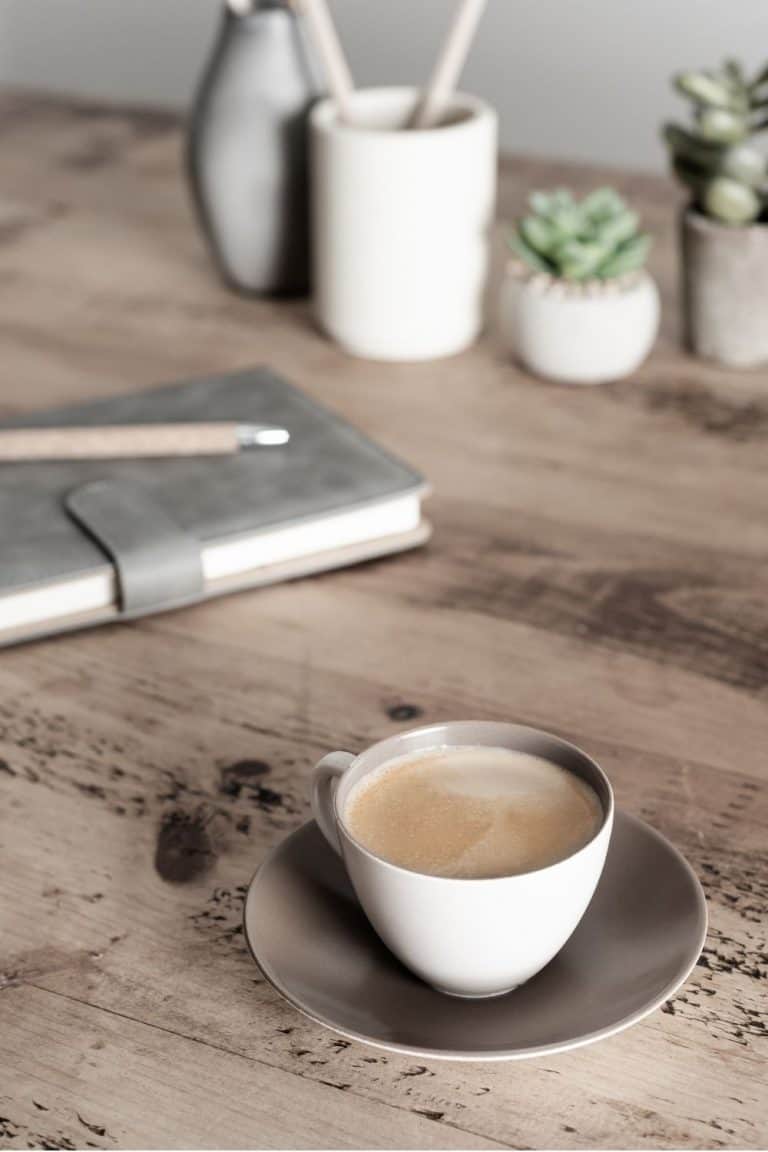10+ Easy Tips Organize Your Life For The Stay-At-Home Wife
If you only knew how to organize your life everything would be good right? Stay-at-home wives are some of the most productive people I know. Not because they have more time then the average person to plan their day.
It’s because as a stay-at-home wife you spend so much time IN the day-to-day of life. This enables you to see what works and what doesn’t more often than others. As well as making the call for what is worth the time and what isn’t.
You don’t wake up knowing how to organize your life. Or suddenly become a pro after reading a book on organizing your life. It takes practice and you have to stick to it.
But you can do it if you have the desire to know how to organize your life.
How You Need To Think To Organize Your Life
But before we get into “how” I want to share some key things you need to remember about organizing.
It’s not always about the tactics or the WHAT you do but it’s how you think about it and what you let into your mind that will have a huge effect on your success.
Organized People Do Not Think Of Themselves As A Victim
Taking control of your time is not easy and having a clear strong mental space can be even harder. But its important because if you come at this idea with the thought that life happens to you and you have no control over it. Then you have already lost.
Yes, life will blow up in your face on occasion but you still have control over a large portion of how you handle those situations.
Any time you are tempted to throw up your hands and say forget it. Ask yourself how can I make the most of this time I do have? Or how can I make this situation a success?

How You Organize Now Is Going to Change Down The Road
One thing I came to realize is sometimes the system you had that worked for a while eventually could stop working. Something in your life changed or the tools you use just don’t jive with your brain anymore.
And you know what? That’s ok. Be open to the idea of changing how you organize your life.
Life changes and the things we do will start to look different as well.
How will you know if a task list system or tool is not working? There might come a time when you are sticking to the system you set up but it just does not feel as natural as it used to. You will likely start to feel like the task is a lot more work than it used to be. OR you’re starting to have grouchy thoughts when it comes time to get that task done.
Who am I kidding… you wouldn’t do that😉 — Just make sure that it’s a flow problem and not a bad attitude problem.
Rather than completely throwing out the whole system. Stop and ask yourself what it is that does not seem to flow. It could be the planner, time of day, or online tool you are using or not using.
Keep your eyes open for those times when you are sticking to the plan but you are not getting the results you want. Slow the pace when you go through a task and try to pinpoint where the snag is.
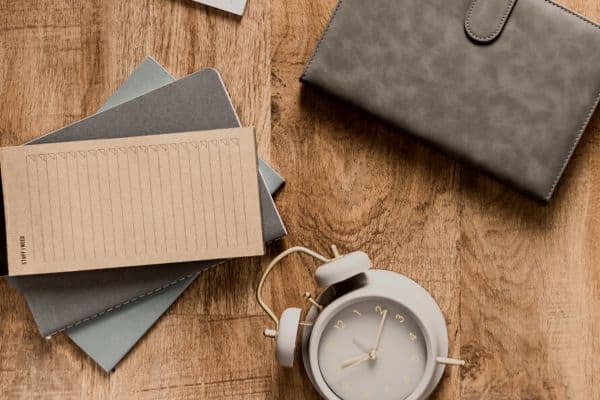
Figure Out How To Organize Your Life A little At A Time
You can’t jump in and bring peace to the crazy parts of your life all at once. That is a sure fire way to get overwhelmed and give up.
You have to start with one area of your life and work your way through each of the areas that need a little help.
It’s like cleaning up a messy room. You will take a LOT more time if you just start randomly grabbing things that need put away. But if you start organizing one small section at a time. You won’t feel as overwhelmed and think about giving up.
If your life is feeling like a hot mess, start with one simple thing at a time. It could be your closet, or as small as the drawer you use most often in your kitchen.
Where To Start Organizing
Boy oh boy, where to start…
I say this over and over but it all depends on how your mind works. Are you easily overwhelmed? Then start with a very small part of your daily routine.
Or if you are a go-getter then work on the area that will help you feel the most at peace. It could be your kitchen, living room, home office, desk, closet… or your digital devices.
Or maybe it is something smaller like your purse or planning system.
Whatever the case make a list of all the areas you can think of you wish worked better. Start with ONE!!! My mom (God love her) is notorious for having multiple projects going at once. The problem with that is it stretches your mind so thin that you can’t focus on one thing.
Start with one thing. Knock it out of the park. Then move on to the next.

Their Way May Not Be Your Way
This has been LIFE-CHANGING. It’s also why I don’t think professional organizers are the best idea because they are going to create a system based on popularity or even your space. Not what works for your mind.
Not all systems, tools, or planners are going to work for you. Some you might love and others you might only use parts of and blend with something else to work better for you as a whole. Be willing to take the pieces you like and create a system to work for you.
Oftentimes these new fan dangled systems are so complicated it’s easy to forget what you are supposed to do. Using all your brainpower to simply remember the steps is not going to help you keep your life organized.
Keep it simple.
You might very well have to make up your own system. The longer I am in business the more I find I have to figure out the right system for me.
Your Strategy To Organize Your Life
To organize your life, it’s important to define your goals and prioritize them. You can’t do everything at once, so it’s crucial to focus on what matters most to you.
Applying the “one-thing” strategy can help you identify your most important goal and prioritize high-impact tasks in your daily routine.
This means identifying the one thing you can do that will have the biggest impact on achieving your goal, and making that your priority before doing anything else. It doesn’t mean that is the only thing you will do today. But you are giving your time to what matters most.
Using this framework helps you remove doubt about what to do going forward, eliminate distractions, and maximize results without feeling overwhelmed. By focusing on one thing at a time, you avoid spreading yourself too thin and increase your chances of success.
By taking the time to define your goals, prioritize them, and choose your one important thing for the day can lead to a more organized life with clearer direction and less stress. You’ll be able to make progress toward your most important goals and feel more accomplished without being tempted to give up.

Build Routines
In our busy lives, it can be hard to keep up with everything we need to do. Building daily routines can help us stay organized and make the most of our precious time.
Here is the thing that people don’t often realize with routines. Routines are the order in which you do something. It has nothing to do with the time they are started.
If you wake up at 7 am one day and decide to sleep later the next because of a hard day the day before. YOU CAN! You simply start your morning routine when you get up.
While routines can provide structure and consistency, it allows you to be flexible them. Unexpected occurrences can happen, and it’s important to be prepared for those occasions by leaving room for adjustments in your daily routine.
In order to stick with your routines, setting alarms or deadlines can be helpful in holding yourself accountable.
This creates a sense of urgency and helps to make sure that your routines don’t fall by the wayside if you have a hard time getting started with new habits. Consistently maintaining your routines can lead to positive changes in your life, such as increased productivity, better physical and mental health, and a sense of accomplishment.
It’s important to create routines for different areas of our lives such as work, exercise, self-care, and household chores. BUT make sure that you start creating one or two routines at a time. Then once you feel good about them you can start implementing the next one.
Whether it’s starting your day with exercise, setting aside time for self-care, or doing household chores at a certain time each day, building routines can help you take control of your life and achieve your goals. Remember to be flexible, hold yourself accountable, and enjoy the benefits of a more organized and fulfilling life.
Plan ahead
Planning ahead is a crucial factor in organizing your life. It not only helps you to be prepared for unexpected situations but also makes you more productive and focused on achieving your goals.
Sorry but no more waiting until the last minute to make decisions. Waiting too long can often lead to last-minute stress and panic, leading to poor decision-making. By planning ahead and making decisions in advance, you can ensure that you have a clear head and good judgment when it comes to making crucial decisions. — This is key to getting to where you want to go in life.
- Set dates ahead of time.
- Put the most important things on your calendar.
- Set goals.
- Know WHY you want to reach that goal.
Another vital part of planning ahead is to not only plan your goals but know what they even are. So many people say they want to do better in life. But what does that look like? Get detailed with it.
A goal should would like this.
I want to do _____ so that____.
This helps to set a schedule and create a plan to make them come to life because you have a clear vision and direction you want to take.
A detailed plan will keep you motivated and on track to achieve your goals, providing a sense of accomplishment when you look back on your achievements.
Overall, by planning ahead, reviewing, analyzing, and creating a game plan, you’ll be well on your way to organizing your life and achieving your long-term goals.

Create A Plan
Don’t be scared of creating a plan. All a plan is when it comes to organizing your life is the steps that need to be done and the timeline in which you have to do them.
Set specific and measurable goals related to your long-term vision for your life.
Write down your goals or projects in detail, and include dates, tasks to complete that goal, and specific outcomes you want because of that goal.
The next step is to break them into smaller, manageable tasks. This will help to make them less daunting and more achievable. — This also saves mental strain when you are trying to figure out what to do next. You don’t have to wonder because the task list is right in front of you. You are also able to do one or two tasks when you have a surprise extra few minutes that you thought you wouldn’t have in stead of scrolling on your phone or piddling.
Creating a timeline for the completion of each task will help you stay accountable and motivated.
If it is a bigger project, use a planner or project management tool to keep track of your progress. Paper is great but if you are on the go and need to buy something for a project you have it right at your fingertips. Trello is my favorite for this.
Trust Your Gut
When it comes to organizing your life, it’s important to be intuitive and self-aware. Trusting your gut can play a significant role in making important decisions and streamlining your daily routine.
Being self-aware allows us to recognize what feels right and wrong for us. When we tap into our intuition, we can make decisions that align with our values and goals but it can also help us create the life we want to live. — This can help you decide when an activity isn’t right, a project on your homestead is taking up more time than you wanted, or a business product takes to much of you as the business owner.
This can ultimately lead to less stress and a greater sense of fulfillment.
Trust your gut when it comes to setting priorities and making choices about how you spend your time. If a task or commitment doesn’t feel right, it may be time to reassess and make adjustments.
Trusting your instincts to focus on what serves our highest goals and say “no” to what doesn’t align with them. We should also prioritize appropriately by considering our values and goals. By doing so, we can create a consistent routine that brings us closer to our dreams without sacrificing our mental health and well-being.
Consistency over Perfection
Perfection can be a double-edged sword and honestly is not attainable. While it’s admirable to strive for excellence in all that we do, it can also be harmful when we set unrealistic expectations for ourselves. Unrealistic plans that don’t fit into our lives can make us feel disappointed and even ashamed when we inevitably fall short.
Consistency over perfection means creating realistic plans that fit into our everyday lives. It means accepting imperfection and recognizing that progress is more important than reaching an unattainable standard of perfection.
We should allow ourselves to make mistakes and pick ourselves up off the ground and get back on the “wagon” and keep moving forward.
Simplify Your Life
Simplifying your life simply means getting rid of what isn’t necessary. In literally EVERY area of your life. This takes time and you won’t be able to do it overnight. This could be a process that takes you a year to feel like you have simplified every corner of your life.
Simplifying various aspects of your life can lead to a more organized and less stressful lifestyle. Less I TRUELY MORE when it comes to having a more peaceful life.
Get out a piece of paper and write a list of the areas you want to work on. Make sure that you allow yourself to be fluid with it. This is a marathon, not a sprint.
- Less on your schedule.
- Being content with the home decor you have instead of needing to redo a space to match what you saw an Instagramer doing.
- Make sure that the goals you are working towards are REALLY what you want and not someone else’s.
- Get clear on your personal style and get rid of any clothes that don’t match that feel or vibe.
- Organizing your physical space. Start by going through each room and get rid of any items that are no longer necessary.
- Create a designated space for everything and implement storage solutions like baskets, shelves, and containers. Remember to keep only what brings you joy or serves a purpose in your life.
- Simplify your digital space by organizing your email inbox, deleting unused apps, and removing unnecessary files from your computer or mobile devices. Utilize productivity tools like Google Keep or a physical sheet of paper to keep track of your to-do list or notes.
- Get rid of tools that you don’t need or that you have 4 of.
In all aspects, the key to simplifying your life is to declutter and only keep items that are vital or bring joy. Through simplification, you can enjoy a more organized and less stressful lifestyle with increased mental clarity and PEACE.<— Thats what we all want right?

Declutter Your Home
Decluttering your home is the crucial first step towards organizing your life. When your home is cluttered, it can cause stress and distraction, making it harder to focus on tasks and enjoy your surroundings.
A decluttered environment can lead to a decluttered mind, increased productivity, and a greater sense of peace and freedom. It’s weird I know but it WORKS. Personally, I think your brain has to process less and you aren’t struggling to find what you need every day. Even if it doesn’t seem “that big of a deal”
Professional declutterer and life coach Kate Ibbotson offers some useful tips for those looking to simplify their living spaces. She suggests giving every item in your home a “home” to reduce the likelihood of them ending up scattered around your house. For example, store cooking equipment in the kitchen, and toys in the playroom. Additionally, arrange items like clothing or paperwork in a way that’s close to where you use them to minimize the steps needed to access and put them away.
With a decluttered space, you’ll find it easier to focus on tasks as there is less distraction and chaos around you. Seeing an organized environment can help you be more productive, as it communicates that your work area is ready for the job at hand.
In conclusion, by decluttering your home, you can declutter your mind and pave the way for a more stress-free, organized lifestyle. Start by following some of Kate Ibbotson’s tips or hiring a professional declutterer, and see how this small change can make a big difference in your daily life.
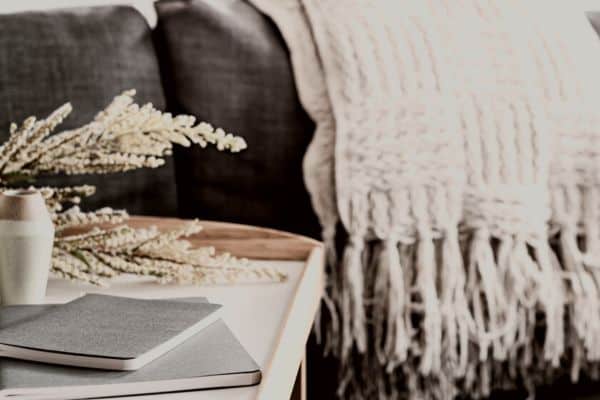
Declutter Your Schedule
Decluttering your schedule is just as important as decluttering your living spaces. A cluttered or too busy of a schedule can cause overwhelm, procrastination, and slow productivity. By simplifying your schedule, you can improve time management and increase productivity.
- To start decluttering your schedule, find the tasks or appointments that are essential and put them on a list.
- Then pay attention to what takes up your time but is not truly important.
- Set boundaries to avoid over-committing and decluttering your schedule.
- Learn to say no to tasks that are not in alignment with your goals and priorities.
This will help you allocate your time and energy better.
Minimize or eliminate distractions by turning off notifications, silencing your phone, and avoiding social media during work hours. (sometimes I have to plug in my phone out of reach so I don’t have sitting right there tempting me to pick it up and check the time or get distracted by texts.
It’s essential to regularly review and reorganize your schedule to ensure that it aligns with your priorities and goals.
Evaluate if the tasks on your schedule are adding value to your life. This is similar to what I said about your planning systems not always working and being ok when you have to change them up.
Do The Little Things Today That Your Future Self Will Thank You For
Automating or outsourcing tasks can feel pretty hard to do in your home life but let me give you some ideas.
Personal Example: My husband and I like to watch the Antiques Roadshow and the online schedule is available online. Typically you can watch it on Tuesdays but you can get it on different channels other days of the week. So I put an appointment on the day we normally watch it in the Google calendar but I also added the link to the schedule in the appointment description so I could find it easily. No more searching for the website. — I think little things like that could be considered automation because you are making little things more easily assessable for yourself.
Even if some things aren’t fully automated little things can significantly increase efficiency in organizing your life.
With the advancement of technology, there are numerous tools available to help you automate tasks and save time.
- For instance, you can use email inbox filters can sort emails and prioritize them, saving you time and energy.
- If you find yourself saying the same thing often to a lot of people creat template text in a tool like trello where you can go and grab the text to copy and paste it where ever you need it.
Regularly review and adjust automation or outsourcing processes to ensure they are still meeting your needs. Determine where you can continuously improve your efficiency and explore new technologies that make your life easier.
By taking control of your life, you can leverage automation and outsourcing to create more time and energy for what’s important.
Be Willing To Test Things Out
Being open to experimentation huge for organizing your life in a way that works for you and giving you a system that you will stick to. It gives you the opportunity to learn from your trial and errors, identifying what works best for you and your goals.
It is often said, it’s better to have tried and failed than not to have tried at all.
Remember that experiments can fail and trying again with a slightly different approach builds resilience, flexibility, and adaptability that you need to succeed in life. Things are not going to go perfectly all the time.
Overcoming Fear and Resistance
Fear and resistance are common barriers to experimenting with new ideas. Ask yourself “What’s the worst that could happen.” Often times the worst thing is simply in our heads and it’s not as bad as our brains are making it out to be.
Instead, focus your efforts on taking small steps outside your comfort zone, adjusting, and learning as you go. This can lead to breakthroughs that will reframe your mindset, and add value to your life in unexpected ways.
Being willing to test out new ideas may be outside of your people’s comfort zone, but it’s often the catalyst to achieving success in life.
Overcome the fears and doubts that come with trying something new, embrace the potential failures, and keep learning along the way. Remember, only by taking risks can one achieve great things and continue to grow.
Free Farm Goal Planner!!!
➡️Get my proven system for choosing your farm goals so you don’t get burnt out.
Create Your OWN Systems
Developing your own organizational system is key to maximizing productivity and efficiency in life. The key here is to experiment and adapt to changing needs and preferences to find the perfect system for you.
There are various tools and systems that can be experimented with, such as Trello, Notion ( I LOVE this tool but if you have limited internet for running our business or Hotsopot you need to try a lighter website), bullet journaling, and planners.
It’s important to be open to trying different systems until you find what works best for you. One system may work for a certain period of time, but as needs change, it’s important to adapt and find a new system that fits your current preferences.
Remember, organizational systems are not one-size-fits-all, and it’s okay to experiment and find a system that is tailored to your personal needs and preferences.
With the right tools and an open mind, you can develop your own organizational system that helps you maximize your productivity and organize your life.
Know How Much Time It Takes You To Complete A Task
Knowing how much time it takes you to complete various tasks throughout your day can be an incredibly powerful tool when it comes to managing your time effectively. This feeds into my next point of using time blocking to help you get more done.
The next time you go to do something get out your phone and time yourself. Anything from folding the laundry to feeding the animals should be tracked. Most of the time we think something takes longer than it does is because we don’t like it. So we drag our feet about it.
Then the opposite happens when we like doing something. We piddle and enjoy the experience. Taking us longer…. Feeding time with the animals comes to mind.
For bigger projects or things you haven’t done before its ok to take a guess. When it comes to setting realistic deadlines for your daily tasks, start by breaking down larger projects into smaller, manageable steps.
Estimate how long each step will take and add a little extra time for unexpected delays or distractions. It’s also important to be honest with yourself about how much time you realistically have in a day.
Setting unrealistic deadlines can lead to added stress and frustration if you’re unable to meet them.
Create Time Blocks
Time blocking helps you SEE what you are expecting of yourself each day. Whether you are setting a routine or you are planning a single day time blocks can help you stay focused and be a good reminder that you only have so much time to get something done.
Once that time is up you have to keep moving.
To create time blocks, one useful tool is Google Calendar. With this app, you can visually divide your day into sections and label each section with a specific task.
It’s important to track how much time you spend on each task. This helps you identify patterns and areas where you may be losing valuable time.
You can use dedicated time-tracking apps or use a timer to help you stay focused on what should be happening during that block of time.
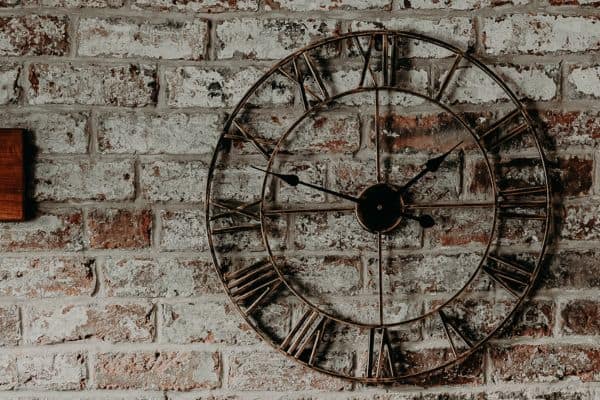
Set Deadlines
Setting deadlines is a crucial aspect of organizing your life and boosting productivity. Deadlines provide structure and allow you to prioritize tasks, giving you a sense of direction and purpose throughout the day.
However, it’s essential to set REALISTIC deadlines not just something you made up in your head. People do this with business all the time.
Unrealistic goals can add stress and discourage progress.
The key to setting realistic deadlines is by breaking down larger tasks into smaller, more manageable steps.
Estimate how much time each step will take, give a little extra time for any unforeseen delays, and be honest about how much time you have available each day. By doing this, you can avoid overwhelming yourself and set achievable goals that contribute to your larger projects.

Pro Tip: If you didn’t need the extra time have a backup list of to-dos that you can go to any time you have a few extra minutes to get something done.
Actions You Need To Implement To Stay Organized
There are systems you need to follow in order to organize your life. But then there are some action items that will help you stay organized as well.
Write It All Down
I don’t care if it is just one thing. Write it down.
Once again for the people in the back. WRITE IT DOWN.
Getting anything that is running through your mind out will help you in so many ways. I heard it said that your mind is meant for coming up with ideas not holding on to them. Your tasks that pop into your mind are ideas.
When you write them down are less likely to forget things. You can sleep better because you don’t have the pressure of everything you have to do weighing on your mind.
Schedule Everything
Anything from a doctor’s appointment to sweeping the floor. If you don’t make the time it won’t get done.
Having a calendar with the hours marked in it is POWERFUL. It helps you see how much you have time for in your day. It will also keep you from being unrealistic about what you plan to get done in your day.
I have tried several different planners but right now I am using the Erin Condren Planner With the hours marked and I am so happy with it. It is strategic BUT still simple. It’s not overly complicated which helps me stay consistent. If you are new to the EC planners you can get $10 off your first order using this link.
I am a doer so getting lots done is not hard for me at all. BUT doing the RIGHT thing can be difficult… Meaning its easy to do things that don’t truly help me get to my goals.
Everything Has A Home
There is going to be the stuff you use often and might even float around a bit. But everything you own needs to have a place it sits. Even if that is just on your side table.
When you are trying to decide where something goes pause and think about what would make the most sense. What direction do you move when you are using this item? Is it going out the door? Or out to your animals?
What about cleaning, doing the dishes, or morning devotions. Find a place that makes the most sense for that item and make “that place” its home.
Stay Away From Bargains
This one is huge. Do not get something just because it is a deal. I will not say who but someone who does this. Whether it is food, home items, or clothes if you don’t see a place in your mind’s eye for it. Then don’t buy it.
The food will go bad before you can eat it and if you don’t love the clothing item. We naturally grab for the things we love and if you don’t love said thing. You won’t use it.
Another thing that goes here is buying crafting or hobby supplies even if you don’t have a project in mind. I like to crochet buuuttt I don’t buy random yarn scenes even if I love the yarn and it is on sale. The chances of finding more of that yarn if you run out are not very high. You are also stuck storing it until you have a project that will take just the amount you have. By then you might fall “out of love” with that color.
Keep Only What You Use
This is similar to the last point, only keep what you need. Don’t keep six of the same thing, one backup will do. If you have so many backups you will never be able to find “what you need” at the moment.
Knowing how to organize your life is a process. It takes time to get good at it and find what works for you. Keep practicing and tweaking until you feel good about it. Take it one step at a time and you will get there.
